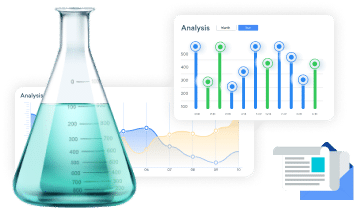Check Global ESG Scores And Ranking: Country Watch
With our Country Watch module, learn about the landscape of Environmental, Social, and Governance (ESG) rankings firsthand. Our platform makes it simple to compare current ESG scores with historical data and yearly fluctuations by giving users fast access to the most recent rankings for any particular country. Users can easily navigate through ESG rankings using flexible options and user-friendly features on AlchemPro. This gives companies/individuals the authority to make educated judgments about sustainability practices and ethical standards. With our comprehensive ESG rating data analysis, you can easily stay up-to-date on global ESG trends and match your investing strategies with your beliefs.
Insights into ESG Rankings
Access detailed ESG rankings specific to each country, providing insights into their environmental impact, social responsibility initiatives, and governance practices. Compare ESG rankings across nations to identify leading performers and areas for improvement, enabling informed investment decisions and engagement with companies and governments on sustainability issues.
Study comprehensive monthly minimum wage rate data for trend identification and in-depth analysis. Monitor fluctuations in the minimum wage over time, identify trends, and apply predictive analytics to enhance labor cost control tactics and guarantee adherence to legal mandates.
Informed Investment Decisions:
Access real-time ESG rankings data to inform investment decisions, ensuring alignment with sustainability goals and ethical standards, and promoting responsible investment practices.
Risk Mitigation:
Analyze ESG rankings to identify environmental, social, and governance risks within investment portfolios, enabling proactive risk management and optimization of long-term financial performance.
Stakeholder Engagement:
Utilize ESG rankings insights to engage with companies and governments on sustainability issues, advocating for positive change and driving improvements in environmental and social performance.
Performance Benchmarking:
Benchmark ESG performance against industry peers and global standards to assess relative performance and identify opportunities for improvement, fostering continuous improvement in sustainability practices.
ESG Integration:
Seamlessly integrate ESG ranking data into your investment analysis & decision-making processes, ensuring that sustainability considerations are systematically incorporated into your investment strategies & portfolio management practices.
FAQ's
-
What Does ESG Stand For, and Why is it Important for Investors?
ESG stands for Environmental, Social, and Governance. It represents the three central factors used to measure the sustainability and ethical impact of an investment in a company or business. Evaluating ESG criteria helps investors assess the potential long-term risks and opportunities associated with a company, including its environmental impact, social responsibility, and governance practices.
-
How are Companies' ESG Rankings Determined, and What Factors are Considered?
Companies' ESG rankings are typically determined by assessing various factors related to their environmental, social, and governance performance. This evaluation can include criteria such as carbon emissions, resource usage, labor practices, diversity and inclusion policies, board diversity, executive compensation, transparency, and ethical business practices.
-
Can I Compare the ESG Performance of Companies Across Different Industries?
Yes, ESG rankings often provide a framework for comparing the performance of companies across different industries. While the specific ESG metrics may vary based on industry-specific considerations, comparative analysis can still be valuable for investors seeking to make informed decisions about their investments based on sustainability and ethical criteria.
-
Are There any Regulatory Standards or Frameworks that Guide ESG Reporting and Ranking?
Several regulatory standards and frameworks exist to guide ESG reporting and ranking, including the Global Reporting Initiative (GRI), the Sustainability Accounting Standards Board (SASB), and the Task Force on Climate-related Financial Disclosures (TCFD). These frameworks provide guidelines for companies to disclose relevant ESG information in a consistent and comparable manner.
-
How Frequently are ESG Rankings Updated, and Where Can I Find The Latest Data On ESG Performance for Companies Worldwide?
ESG rankings may vary in terms of frequency of updates depending on the provider. Some platforms update their rankings annually, while others may provide more frequent updates. Investors can typically access the latest data on ESG performance for companies worldwide through specialized ESG research firms, financial databases, or dedicated ESG rating agencies.

